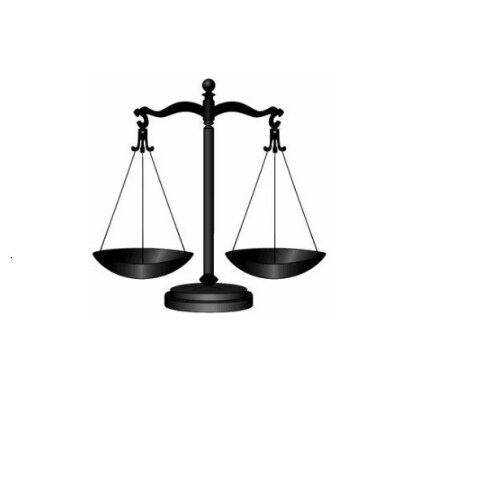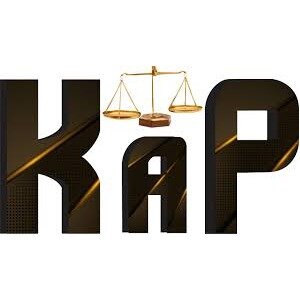Best Military Law Lawyers in Nigeria
Share your needs with us, get contacted by law firms.
Free. Takes 2 min.
Or refine your search by selecting a city:
List of the best lawyers in Nigeria
About Military Law in Nigeria
Military Law in Nigeria governs the conduct, rights, and responsibilities of members of the Nigerian Armed Forces. It encompasses both domestic military law and international conventions to which Nigeria is a party. The Armed Forces Act is the key legal document, providing the framework for justice and discipline within the military. Military law processes often differ significantly from civilian legal processes, with military courts and tribunals handling offenses and disputes within the armed services.
Why You May Need a Lawyer
Individuals may need a lawyer specializing in Military Law for several reasons, including but not limited to facing charges under military law for offenses like desertion, insubordination, or conduct unbecoming of a service member. Other situations include appealing decisions made by military tribunals, resolving disputes related to military contracts or procurement, seeking redress for wrongful discharge or discrimination, and understanding rights and benefits as a former service member or dependent.
Local Laws Overview
Military Law in Nigeria is primarily governed by the Armed Forces Act, which outlines the legal framework for the conduct of the armed services. Key aspects include the jurisdiction and powers of military courts, the processes for courts-martial, appeals procedures, and the specific offenses categorized under military law. The Act ensures the maintenance of discipline and integrity within the military and includes provisions for punishment, detention, and discharge. Additionally, international humanitarian laws and human rights laws often intersect with local military legislation, impacting military operations and conduct.
Frequently Asked Questions
What is the Armed Forces Act?
The Armed Forces Act is the legislative document that outlines military governance in Nigeria, detailing the structure, duties, and conduct expected within the armed services.
How does a court-martial work in Nigeria?
A court-martial in Nigeria operates as a military court responsible for hearing cases related to military offenses. It follows specific legal procedures distinct from civilian courts and is composed of military officers.
Can military personnel appeal court-martial decisions?
Yes, military personnel can appeal decisions made by courts-martial to higher military authorities or seek judicial review in civilian courts under certain circumstances.
What are common military offenses under Nigerian law?
Common offenses include insubordination, desertion, absence without leave (AWOL), theft, conduct unbecoming of an officer, and dereliction of duty.
How can family members of military personnel seek legal help?
Family members can seek legal assistance through military legal aid services or consult with civilian lawyers specializing in military law.
Are there protections against discrimination for military personnel in Nigeria?
Yes, there are protections under both military regulations and Nigerian law against discrimination, based on gender, ethnicity, or religion, within the armed forces.
What happens if a service member is wrongfully terminated?
If a service member believes they have been wrongfully terminated, they can file a complaint through military channels or pursue legal action with the assistance of a lawyer.
How are international humanitarian laws applied in Nigeria's military context?
International humanitarian laws are integrated into military training and operational procedures, affecting conduct during conflicts and the treatment of prisoners of war.
What are the roles of military lawyers in Nigeria?
Military lawyers provide legal counsel to military departments, represent personnel in courts-martial, and ensure compliance with military laws and regulations.
How can military contracts be legally enforced?
Military contracts are subject to the same legal standards as civilian contracts, but disputes may first go through military arbitration before entering civilian court systems if needed.
Additional Resources
For those seeking more information about Military Law in Nigeria, consider consulting resources like the Nigerian Army Legal Services or the Nigerian Ministry of Defence. Additionally, the Nigerian Bar Association provides directories of legal professionals with expertise in military law.
Next Steps
If you require legal advice or representation in Military Law, it’s essential to consult with a legal professional who specializes in this field. Conduct research to find qualified military lawyers, schedule consultations, and prepare any relevant documentation or information about your case. Understanding your rights and the legal processes involved can aid in resolving your concerns effectively.
Lawzana helps you find the best lawyers and law firms in Nigeria through a curated and pre-screened list of qualified legal professionals. Our platform offers rankings and detailed profiles of attorneys and law firms, allowing you to compare based on practice areas, including Military Law, experience, and client feedback.
Each profile includes a description of the firm's areas of practice, client reviews, team members and partners, year of establishment, spoken languages, office locations, contact information, social media presence, and any published articles or resources. Most firms on our platform speak English and are experienced in both local and international legal matters.
Get a quote from top-rated law firms in Nigeria — quickly, securely, and without unnecessary hassle.
Disclaimer:
The information provided on this page is for general informational purposes only and does not constitute legal advice. While we strive to ensure the accuracy and relevance of the content, legal information may change over time, and interpretations of the law can vary. You should always consult with a qualified legal professional for advice specific to your situation.
We disclaim all liability for actions taken or not taken based on the content of this page. If you believe any information is incorrect or outdated, please contact us, and we will review and update it where appropriate.
Browse military law law firms by city in Nigeria
Refine your search by selecting a city.
















